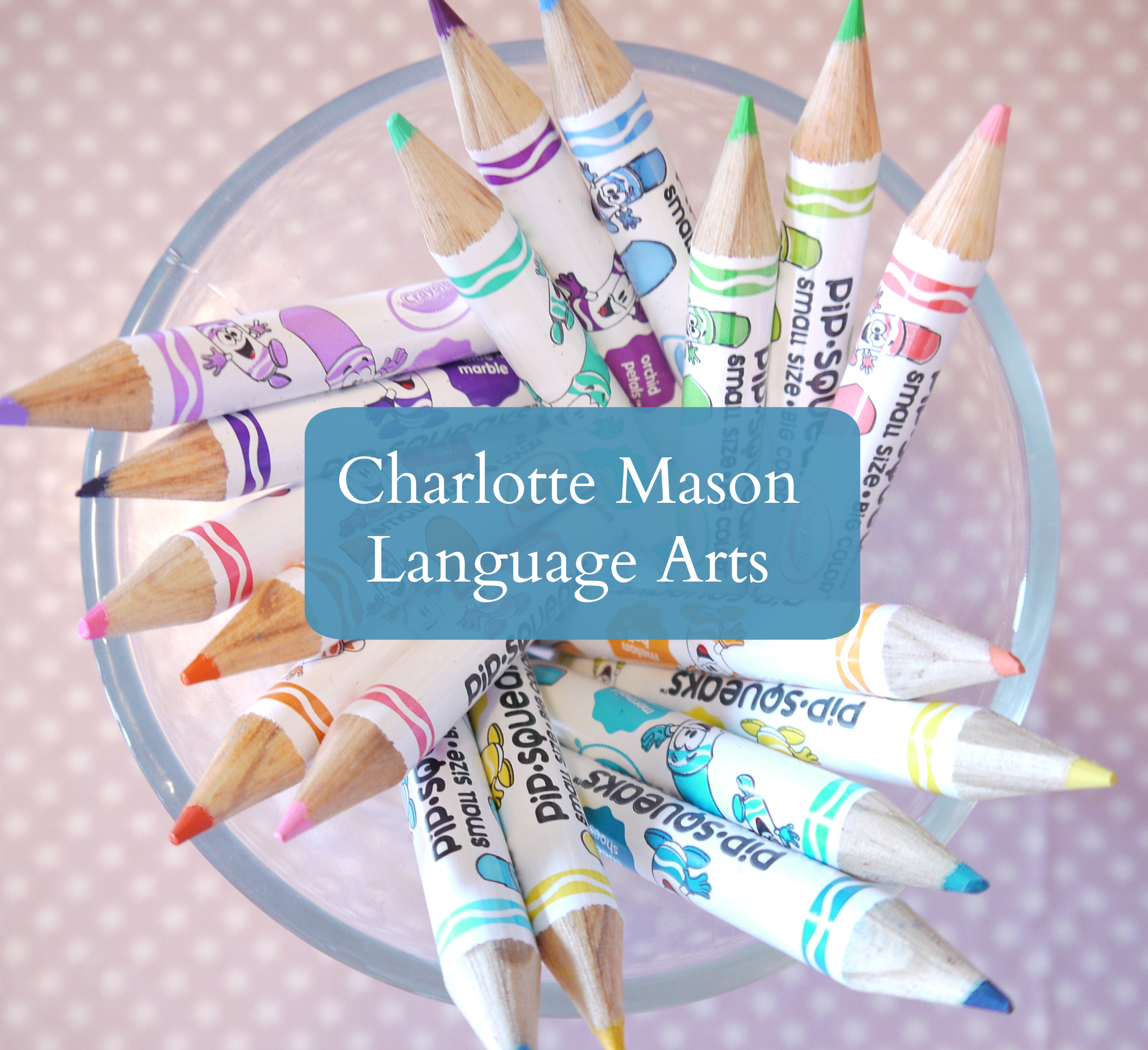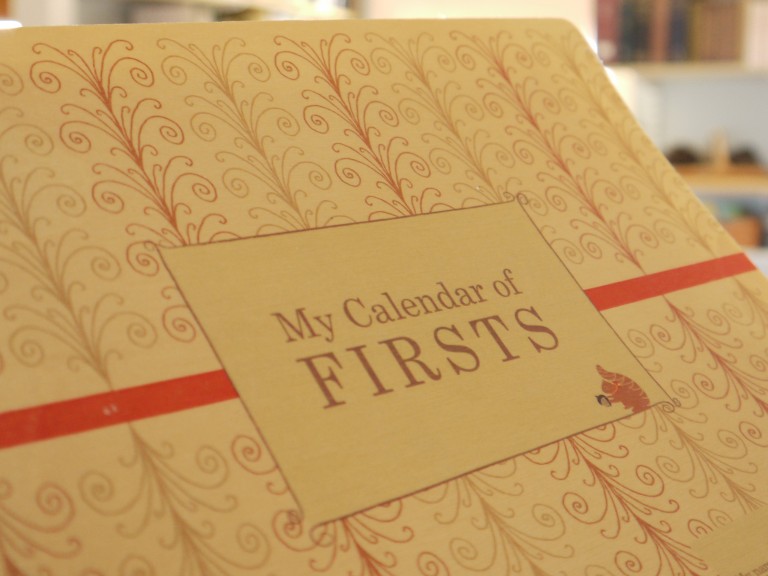Considering Language Arts – Grammar
 This is part 5 in a series considering Language Arts.Charlotte Mason did not begin formal grammar instruction until around the 4th grade, advocating that children who read from a generous feast of living books and were in the habit of narrating regularly would naturally transition into grammar lessons with ease around this time. She says in Home Education (p. 295 – 296):
This is part 5 in a series considering Language Arts.Charlotte Mason did not begin formal grammar instruction until around the 4th grade, advocating that children who read from a generous feast of living books and were in the habit of narrating regularly would naturally transition into grammar lessons with ease around this time. She says in Home Education (p. 295 – 296):
“…grammar, being a study of words and not of things, is by no means attractive to the child, nor should he be hurried into it.”
“Because English Grammar is a logical study, and deals with sentences and the positions that words occupy in them, rather than with words, and what they are in their own right, it is better that the child should begin with the sentence, and not with the parts of speech; that is, that he should learn a little of what is called analysis of sentences before he learns to parse; should learn to divide a simple sentence into the thing we speak of, and what we say about it – ‘The cat–sits on the hearth.’ – before he is lost in the fog of person, mood, and part of speech.”
I began to doubt in our early years. Thinking that a Charlotte Mason approach to language arts was too simple to be real…too easy to be sufficient, I decided I’d need to supplement with purchased workbooks. Surely we needed to supplement, to add, to ensure adequate coverage. I was certain we were going to miss the boat grammatically if I didn’t. What resulted was not grammatical fluency, or ease, or even adequate coverage, but frustration and a child that felt overtaxed and overburdened. I didn’t trust the process. I had to learn the hard way that you can’t to do this halfway for it to work. That first step out in faith does require a bit of trust, but I can say from a unique perspective that it will be worth your while. Believe. It really is this simple.
How in the world do you teach grammar then?
Gently and naturally with our familiar friends – the short lesson and the living book.
I approach grammar formally during 3 of the 12 years – once in elementary, once in middle school, and once more in high school. For all the other years, from 4th grade (when I begin teaching grammar) and above, grammar is integrated and reviewed as part of the dictation lesson, during what I call grammar-naturally years. This is the scope and sequence that I use:
- 4th – 6th graders – Grammar taught as short lessons through dictation exercises – sentence (subject & verb), capitalize proper nouns and the beginning of a sentence, a sentence ends with punctuation, introduce parts of speech. (if this seems like a lot, please remember that it is taught in one short lesson at a time, over a period of time, not all at once.)
- One year of formal grammar instruction –
- My very first lessons begin with Charlotte’s own lessons, which can be found on p. 296 – 300 of her book, Home Education
(you can read it free online at Ambleside – this link takes you directly to her grammar lessons).
- After these introductory lessons, we begin a year using Winston Grammar Basic Level.
- My very first lessons begin with Charlotte’s own lessons, which can be found on p. 296 – 300 of her book, Home Education
- Other years are grammar-naturally years, reviewing basic grammar during dictation lessons.
- One year of formal grammar instruction –
- 7th – 8th graders – Grammar taught as short lessons through dictation exercises – usage and parts of speech review.
- One year of formal grammar instruction – Winston Word Works.
- Other years are grammar-naturally years, reviewing basic grammar during dictation lessons.
- High school – Grammar taught as short lessons through dictation exercises – review of parts of speech, more advanced grammar, diagramming (if desired)
- One final year of grammar instruction – Advanced Level Winston Grammar.
- Other years are grammar-naturally years, reviewing grammar during dictation lessons.
Do you use any formal programs to help you teach grammar?
I use Charlotte Mason’s grammar lessons to provide that logical sense of the whole – working with the sentence first. After that, I use Winston Grammar to convey formal lessons on the parts of speech, usage, and advanced grammar lessons. (more on Winston Grammar below)
What do grammar lessons look like during grammar-naturally years?
I keep in mind the language arts scope and sequence I listed above, and those things I’m looking to convey for that grade, and review concepts a little at a time. With each dictation, I discuss something simple and small!
During elementary years we enjoy Schoolhouse Rock songs and Grammar Songs
. I’d like to tell you that Schoolhouse Rock is only used in elementary years…but alas…it is popular with everyone in this house, no matter the age! conjunction-junction…what’s…your…function????? One other surprisingly fun resource for hitting punctuation…and convincing your 4th grader that a comma actually means something in a sentence is Victor Borge’s phonetic punctuation
. Hilarious!!! But also SUPER effective!!!!!!
Let me give you an example of a dictation that makes use of a gentle grammar reinforcement. We’ll take the dictation example I offered for my 5th grader from the last post on dictation lessons (Keep in mind that this is a very short dictation lesson for a 5th grader, and it was chosen based on my son’s needs and abilities. You’ll choose dictations based on your child’s needs!):
All I have seen teaches me to trust the Creator for all I have not seen.
Here’s how this dictation lesson sounds:
Me: Can you read this aloud?
**Mark reads aloud**
Me: Are there any words in this sentence that you don’t understand – you don’t know what they mean?
Mark: No.
Me: Are there any words in this sentence you think would be hard for you to spell?
Mark: Yes…>> starts looking at the beginning of the selection <<……teaches and Creator. >> He underlines them on his study page <<
Me: Ok , let’s talk about them a bit…teaches has a vowel pair – ea. Do you remember what ea says when they are found in a word together?
Mark: Yep….E.
Me: Right. Now, let’s take a look at Creator – it’s capitalized because proper nouns are capitalized. Do you remember what a proper noun is?
Mark: It’s a special person, place, thing, or idea, right?
Me: Yes! It’s a PARTICULAR person, place, or thing. So, Creator in this quote is a particular name of God, the Creator. So, it’s capitalized. Are there any other capital letters in this sentence?
Mark: No.
Me: Really? There are NO OTHER capital letters in this sentence?
Mark: Oh yeah….the first letter…because the first letter of a sentence is always capitalized.
Me: YES!!!! You remember! And what is ALWAYS at the end of a sentence?
Mark: A period.
Me: Hmmmm….Is it always a period?
Mark: It is in this sentence.
Me: >> laughing << That’s true…but are there any other punctuation marks that could end a sentence? What are they?
Mark: >> thinks << ……an exclamation point……..and a question mark.
Me: Yes! Great! Now, can you read the sentence aloud to me again?
Mark: >> reads selection <<
Me: Great! Now, you work on making a picture of the words you underlined in your mind’s eye. Can you study it for a while until you can see it in your mind with your eyes closed? Look at the first letter, and the letter that follows that, and the letter after that…and so on. Take a picture of all those letters in EXACTLY the right order. Spell it out loud if you need to.
Mark: I’m ready, I can see the words.
Me: Ok – good! Would you like to write them really big on the dry erase board now?
Mark: OK. >> Writes words….while I stand nearby watching to make sure that he writes the words EXACTLY as they are spelled! I DON’T WANT a memory of an incorrectly spelled word <<
Me: Great! We’ll study more tomorrow.
This takes about 10 minutes. Lesson over.
What do grammar lessons look like during formal grammar focused years?
On years that we study grammar formally, using Winston Grammar, we work on a lesson or two a week. Lessons are short, and each lesson makes use of a card to represent a concept or part of speech. These cards make it easy to branch out from the program examples to other sentences that might come from a living book. I keep lessons under 15 minutes.
Keep watching Schoolhouse Rock and Victor Borge!!!
Dictations are simple and follow the same basic format of the grammar naturally dictation lessons. The only difference being, if we’re discussing “adjectives” in Winston Grammar, I might ask my child to identify the adjectives in the passage…that kind of thing. In this way, dictation lessons reinforce Grammar lessons.
Resources that work well for us:
- Simply Grammar, An Illustrated Primer
– Karen Andreola has revised and expanded Charlotte Mason’s own grammar lessons and compiled them in this book. I use it loosely, as a guide, not necessarily in the order it was written (save the first lessons), and certainly not all in one year. It’s a book that serves as a great supplement for me over the years and across ages. It’s something I pull out occasionally to reference, or from which I can springboard a lesson. It is also a good source for those very first lessons, providing children with that logical sense of the sentence so that we can then work toward the words – the parts of speech, and the places they occupy within the sentence. (It is not something I’d consider necessary, just helpful. Charlotte Mason’s own first lessons can be found for free online as I linked earlier.) I prefer Winston Grammar for its logical, step-at-a-time approach to teaching parts of speech. However, I enjoy filling in lessons with this book after our first year’s introduction of grammar is complete, so you’d likely find me using it during our grammar-naturally years.
- Winston Grammar – There are a number of great grammar programs out there, and this is one of them! This program has earned a valued place on my shelf and fits our approach as well as fitting the learning styles my children have (if you have a hands-on learner, consider this program). I wanted to link to an outside review for you, but Cathy Duffy doesn’t have an online review available. She does review the program in her book, 100 Top Picks for Homeschool Curriculum
…so it must make her top 100 list. It definitely makes mine! There are a number of really good grammar programs out there, several of which lend themselves naturally to the short lesson. I like Winston Grammar because it is simple, hands-on, and effective. The program makes use of 1) clear and simple explanations of the parts of speech, 2) how they sometimes relate to or signal another part of speech, and 3) contains hints for identifying parts of speech on small (business sized) cards, which the child uses as part of the program. Lessons are taught and build each on the other, a little at a time, and the cards are used by the child to “build” practice sentences, using cards to indicate which part of speech is represented by the words in the sentence. It works super with a short lesson approach, and I can use the cards that come with the program to build and analyze ANY sentence! It’s not the only grammar program out there, but it works great for us! If you have a child that *needs* a hands on approach and have wondered how in the world to do that with grammar lessons, this would be a great program to consider. Beyond that, it is effective in its simplicity and logical approach!
- The Elements of Grammar
by Margaret Shertzer – there is nothing fluffy about this book. It’s a good general grammar reference. It was passed on to me by my mom when she was done teaching with it, and I pull it out when I need to look something up. Plain. Straightforward. Streamlined. Useful.
- The Harbrace College Handbook
by John Hodges and Mary Whitten (there are several editions, I have my old copy, a 10th edition
) – this was my high school grammar book. As distasteful as high school grammar was for me, and having discarded almost every shred of uselessness from my high school days, this lone book remains on my shelf and is often used as a reference. It covers a comprehensive scope including grammar, mechanics, punctuation, spelling and diction, effective sentences, and composition of paragraphs, research papers, and business writing. I find its layout to be intuitive and useful as a reference.
- Eats, Shoots & Leaves: The Zero Tolerance Approach to Punctuation
– by Lynne Truss – a gem!!! Every high school student should read this book! It is a true living grammar book, written by an author with an unabashed passion for the topic!
- Grammar-Land
by M. L. Nesbit – the hat tip for finding this gem goes to my friend across the ocean, Erin at Seven Little Australians Plus One, and her sharing on a thread at the 4Real Learning Forums. This makes a fantastic teatime read aloud for introduing the parts of speech. It’s engaging and informative. My kids loved this book!
- Schoolhouse Rock
– I can’t help myself. I grew up with Lolly, Lolly, Lolly get your adverbs here. It’s still great!
- Grammar Songs
by Kathy Troxel – we don’t go through all of these, but there are some fun songs in here. The lyrics are catchy and full of helpful grammatical hints!
So, that’s how grammar looks here…integrated naturally with dictation lessons, with a few years of a formal approach after the 4th grade.
Next up, the final component of language arts – Composition!I hope this series is, in a small way, helpful. I feel compelled to say again that I’m no expert in living this! I have certainly made mistakes, and my home, though joyful, is not a perfect embodiment of any of these examples I give to you. I pray I’m succeeding in letting you know how valuable I find these methods, along with some ways they might practically speaking look in a home. We consider and express these methods in our home because I believe in them, trust them, and have seen the fruits of them. Stick with me and we’ll uncover and consider a little more of Charlotte Mason’s methods with regard to language arts, and I’ll give you a further glimpse into how we live out language arts in our home with various ages!






I always seem to get confused when discussing different grammar programs that have different levels. I have a hard time choosing what level would be best for each child…for example…I have teens that need to go over grammar remedially from time to time (they seem to forget if not reinforced daily) If I were to use Winston Grammar, which level do you think would be good for them?…or would something else be more appropriate in that circumstance?
Thank you for all of your hard work and diligence in blogging…I always get so much out of what you share..I need things like this to ponder!
Sent with a prayer!
Do you realise you are so inspiring me and basically re-writing my plans for this term?:)
Glad to know you loved the Grammar Land gem:)
Donna Marie asked:
>> If I were to use Winston Grammar, which level do you think would be good for them? << I can definitely answer this, Donna Marie! In my experience, ***Winston Grammar Basic Level*** is the best all-round program for every grade/level/ability. It's my “if-I-could-only-buy-one-grammar-help-and-have-it-work-for-all” recommendation. You could use this program with your 4th/5th grader…and then later that afternoon use it with your teen…all without skipping a beat. There's nothing twaddly about this resource – it's simple and straightforward which is what makes it so useful. I have a hard time telling someone where to invest their home ed $$…because what if it doesn't work well for them? But I'm going to go out on a limb…if you made a decision to purchase Winston Grammar Basic, you would have everything you need for all ages/grades of grammar…this year, and every year. It is a solid and valuable fixture on my shelf, and because I find it so adaptable and useful across ages and grades, I can recommend it with much confidence! If you find that one day you have the resources to add Winston Grammar Word Works and the Winston Grammar Advanced Level – Great! If not, you're still fine with ***Winston Grammar Basic Level***! I'll tell you why…let's say you work through the program with one of your children this year. They do well, and next year rolls around and you find that there are some holes in their memory – they can't find the prepositional phrase easily…or they've forgotten what an adverb is. Easily fixed! No need to purchase a new workbook…or anything else! Pull Winston Grammar off the shelf, review a small section as part of your short lessons, and use the cards to work with sentences you choose for your dictation lessons. I will say that I laminated my cards for durability. I'm glad I did! I know…I gushed. I probably shouldn't have. There really ARE other great grammar programs – I just stopped looking after I found something that worked so well for us. It would be great if you could borrow this and take a look at it to make sure it's a worthwhile purchase consideration, but I'll tell ya…it sure has earned it's keep here! Fire away if you have more questions about Winston Grammar, Donna Marie! Sending this back your way with prayers! 🙂
Thank you, Erin! You're so kind! 🙂 I'm SOOO glad these have been helpful!
Jen,
Just wanted to say that, even though this comment is late in coming, your sample dictation lesson was a breath of fresh air for me! I'm doing my planning for the upcoming year and we have done some dictation (similar to your style) but usually let it slide. To have a sample model in my reference book that I flip through (gems from other homeschool moms that really work) will be a great help in motivating me again with this tried and true method!